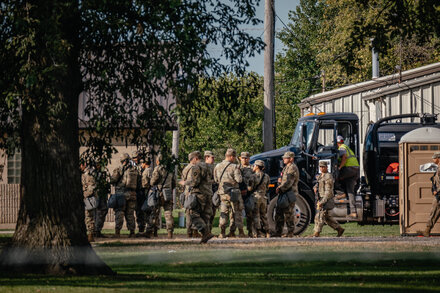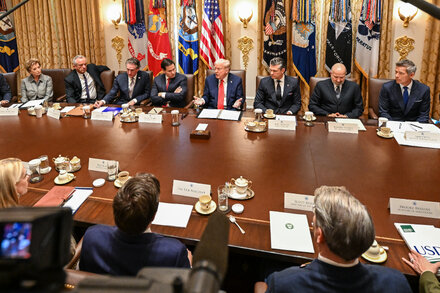Texas’s aggressive deployment of state resources, including the National Guard, and its transfer of migrants to “blue” states are severely straining long-standing norms of inter-state cooperation. This escalating political and logistical dispute is creating deep rifts between governors across the nation.

A burgeoning political and logistical dispute between Texas and several “blue” states has escalated, threatening to unravel long-standing norms of inter-state cooperation. The friction stems from Texas’s aggressive deployment of its state resources, including the National Guard, in its border security operations and subsequent transfers of migrants to northern cities, actions that governors in recipient states decry as politically motivated and uncoordinated.
For months, Texas Governor Greg Abbott has spearheaded “Operation Lone Star,” an initiative aimed at deterring illegal immigration at the state’s southern border. While Abbott maintains these efforts are a necessary response to perceived federal inaction, the collateral effects—particularly the unannounced transport of thousands of migrants to cities like New York, Chicago, and Denver—have drawn sharp condemnations from governors struggling to accommodate the influx.
Escalating Tensions
The deployments, which involve utilizing state funds and the Texas National Guard to enhance border security, have been characterized by Texas as a vital defense of its sovereignty. However, the subsequent busing of migrants to distant cities without direct coordination has transformed a state-level policy into a national political flashpoint, straining relations between state executives across party lines.
“Texas will not stand idly by while our border is overwhelmed,” Governor Abbott stated in a recent press briefing. “We are taking decisive action to secure our state, and if that means other states feel the effects of a broken federal system, then perhaps it will spur Washington to finally act. Our deployments are about protecting Texans.”
This stance has been met with outrage by governors whose states are now shouldering the unexpected burden of housing, feeding, and integrating migrants. They argue that Texas’s actions are not only inhumane but also a deliberate attempt to weaponize the immigration crisis for political gain, bypassing established protocols for inter-state communication and mutual aid.
“These uncoordinated, politically motivated transfers are not a solution; they are a weaponization of human beings and a deliberate attempt to strain our resources,” countered a governor from a northeastern state, who requested anonymity to speak candidly about the strained relationship. “It’s an unprecedented breach of inter-state comity and makes genuine collaboration on any issue impossible when one state openly attacks another’s ability to govern.”
A Breakdown in Federalism
The intensifying conflict raises fundamental questions about federalism, the appropriate use of state resources, and the limits of gubernatorial power. Traditionally, states work collaboratively on shared challenges, often leveraging organizations like the National Guard for emergencies with mutual consent and coordination. Texas’s approach, however, is seen by critics as a unilateral imposition, effectively exporting its perceived problems to other states without their consent or preparation.
The dispute has moved beyond political rhetoric, impacting practical matters such as resource sharing, emergency management coordination, and even the collegial atmosphere typically expected among the nation’s governors. With no clear resolution in sight, the “blue-state deployments” by Texas appear poised to continue shredding the already frayed fabric of inter-state relations, leaving a legacy of distrust and animosity.
Source: Read the original article here.





